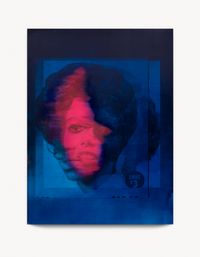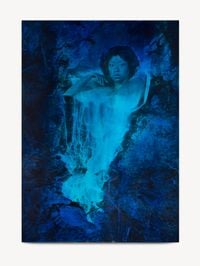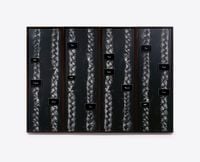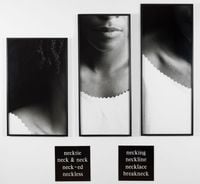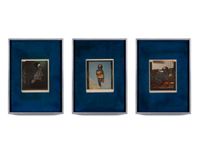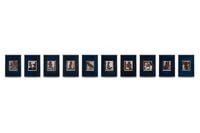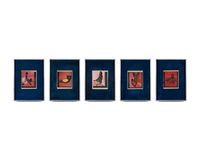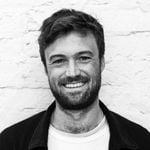Lorna Simpson is an American artist best known for her pioneering conceptual photography, which challenges historical and persisting misconceptions about gender, race and cultural identity.
Read MoreBorn in Brooklyn, New York in 1960, Lorna Simpson spent time in Europe and Africa in the late 1970s, where she became acutely aware of documentary photography's limitations and the voyeurism it promoted.
Receiving her BFA at the School of Visual Arts, New York in 1982, followed by an MFA from the University of California in 1985, where she was taught by Allan Kaprow and Eleanor Antin, she devised ways of upending the relationship between image and audience, and the assumed 'truth' supplied by documentary styles. Her photo-text technique emerged, a now characteristic visual layering with text superimposed and placed alongside her photographs.
Works like Gestures and Reenactments (1985) question the interrelationship between text and image, scrutinising the forces determining representation.
Lorna Simpson's photography, often carefully posed in her studio, and her later film, painting, drawing, collage, and sculpture, challenge conceptions of identity, authorship and memory
It is Lorna Simpson's interest in sources of authorship and historical memory that shaped her work throughout the 1980s. With a forensic eye, Simpson picked apart the narrow languages and images used to present African American people, often compiling fragmented photos to suggest depersonalisation and objectification.
During the 1980s, her prominence grew and her reputation for critical examination of American society was cemented. Stereo Styles (1988), one of Lorna Simpson's most notable works, challenged the identities aligned with and projected upon black women and how gender and culture shape life experiences in America. Two rows of images capturing the backs of women's heads with different hairstyles is juxtaposed with single descriptive words, including 'Magnetic' and 'Sweet'.
In 1990, Lorna Simpson became the first Black woman to exhibit at the Venice Biennale, and the first Black woman to have work presented in the 'Projects' series at the Museum of Modern Art in New York. The portraits included in the MoMA show tackled sexuality, desire, and the racism ingrained in photographs by presenting faceless bodies framed with words including 'identify'.
Since then, Lorna Simpson's practice has expanded to include film, sculpture, painting, collage, and drawing. Her films are stages for surreal conversations, which often mark continuity between characters who might traditionally be considered unrelated.
Lorna Simpson's sculptures, like Unanswerable (2018), offset historic images taken from vintage Ebony and Jet magazines with natural landscape photos. The incongruous compositions reflect on the complex and absurd aspects of contemporary American life. As she has said, 'For me, the images hearken back to my childhood, but are also a lens through which to see the past fifty years in American history.'
Simpson has achieved many accolades over her career. She was a finalist for the Hugo Boss Prize in 1998, and received the International Centre of Photography's Infinity Award in Art in 2010, and the J. Paul Getty Medal in 2018.
Lorna Simpson has been the subject of solo exhibitions and group exhibitions internationally.
Lorna Simpson solo exhibitions include: Lorna Simpson: Summertime, The Underground Museum, Los Angeles (2019); Lorna Simpson: Untitled, Museum of Contemporary Art Chicago, Chicago, USA (2017); Lorna Simpson, BALTIC Centre for Contemporary Art, Gateshead, UK (2014); Gathered, Brooklyn Museum, Brooklyn NY (2011); Recollection: Lorna Simpson, Walker Art Gallery, Minneapolis (2010); Lorna Simpson, The Whitney Museum of American Art, New York (2007); Lorna Simpson: For the Sake of the Viewer, Museum of Contemporary Art Chicago (1992); Lorna Simpson: Recent Phototexts, 1989-90, Denver Art Museum, Denver CO (1990).
Lorna Simpson group exhibitions include: The Naked Truth, Rijksmuseum Twenthe, Enschede, The Netherlands (2019); Selections from The Studio Museum in Harlem, The Studio Museum in Harlem, New York (2019); Outliers and American Vanguard Art, Los Angeles County Museum of Art, Los Angeles CA (2018); We Wanted a Revolution: Black Radical Women, 1965–85, Institute of Contemporary Art, Boston, Massachusetts MA (2018); What Absence is Made Of, Hirshhorn Museum and Sculpture Garden, Washington DC (2017); and Citizens, Tate Modern, London, United Kingdom (2017)__.
Lorna Simpson's website can be found here.
Ocula | 2022
